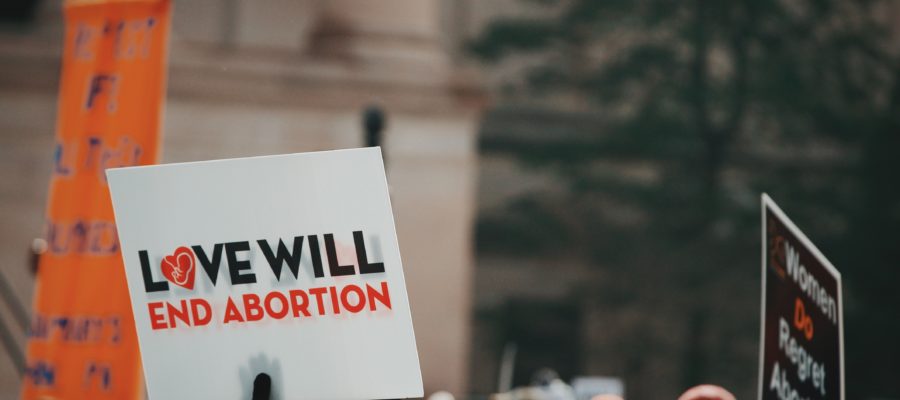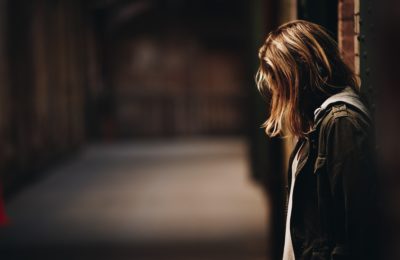October 12, 2021 | Published first in Profiles of pro-life women: A Q&A with Elizabeth Kirk
Frequently, I experience the presumption that, because I am a professional woman with an advanced degree, I must be pro-choice.
Reprinted with permission from Catholic News Agency
This December, the US Supreme Court is set to hear Dobbs v. Jackson Women’s Health Organization, a case that many experts say presents the most momentous test yet of Roe v. Wade, the 1973 decision that legalized abortion nationwide. At issue is the constitutionality of Mississippi’s 2018 law banning abortion after 15 weeks of pregnancy.
As with any high-profile Supreme Court case, dozens of amicus curiae, or “friend of the court,” briefs have been filed both in support of and in opposition to the Mississippi law.
What follows is a Q&A with Elizabeth Kirk, a research associate and lecturer at the Catholic University of America and one of the signers of an amicus brief supporting Mississippi’s abortion law.
The brief lays out an argument that abortion has hurt women’s advancement; that women were making strides toward equality before Roe; and that abortion is not necessary for women’s socioeconomic success.
Kirk is a research associate and lecturer at the Catholic University of America, where she also serves as the Director of the Center for Law and the Human Person. Her scholarly interests are in the area of law and the family, and in particular the intersection between law and the Catholic intellectual tradition.
CNA: The amicus brief you signed lays out an argument that contrary to the Supreme Court’s rulings, abortion has not facilitated women’s advancement, and in reality, has hurt women. Can you walk me through the brief’s argument and evidence?
EK: There are 80 briefs in support of the State of Mississippi in the Dobbs case, each one articulating a different relevant argument. The focus of this particular amicus brief relates to the claim made in Planned Parenthood v. Casey (1992) to justify upholding Roe: “the ability of women to participate equally in the economic and social life of the Nation has been facilitated by their ability to control their reproductive lives.”
The authors rebut this claim, summarizing the empirical evidence relating to women’s historical achievements and their participation in society in the last half-century, and demonstrate convincingly that the Casey premise is false, i.e., that there is no causal link between the availability of abortion and women’s participation in society.
Furthermore, the authors point out that the data actually suggest some correlation between abortion and negative consequences for women, such as the feminization of poverty and declining levels of happiness.
Finally, the authors make the point that the argument that women need abortion to participate necessarily takes the male reproductive experience as the model for economic and social participation, and that this lopsided view has prevented meaningful accommodation of women, including their experience of pregnancy and motherhood, in the workplace and other spheres of society.
How did it come about that you signed the amicus brief in this case? Have you signed amicus briefs in similar cases in the past?
The amicus brief drafted by Teresa Collett, Helen Alvare and Erika Bachiochi was written on behalf of professional women and women scholars who hold doctorate degrees, as well as prolife feminist organizations. Any woman who fit that description and supported the brief’s argument was welcome to join. I know the drafters personally and was honored to sign.
I have testified in state legislatures on matters related to abortion, but this is the first amicus brief I have signed on the topic. I joined previous amicus briefs in Fulton v. City of Philadelphia [a significant case related to religious freedom] and Harris Funeral Homes v. EEOC, a companion case to Bostock [a 2020 decision that a federal ban on sex discrimination also protects sexual orientation and gender identity].
Many are saying the Dobbs case has a chance of overturning Roe v. Wade. Do you agree?
Certainly. This case presents this question to the Court: “Whether all pre-viability prohibitions on elective abortions are unconstitutional.” Under the governing precedents of Roe and Casey, there is a constitutionally protected right to abortion and states may not place an “undue burden” on it before viability. So, the question presented goes to the heart of the matter.
Of course, there are a number of ways the Court could handle this case short of overturning Roe and Casey. For example, it may affirm the constitutional right itself, but articulate a different test than the current “undue burden” test, or it may reconsider the role of viability in evaluating laws restricting abortion.
Many people are talking about what a “post-Roe” country could look like. What could the legal landscape of the United States look like, in terms of abortion law, if Roe is overturned?
A post-Roe legal landscape will better reflect the different views our pluralistic society holds on abortion. If Roe is overturned, all this means is that abortion regulation will again become the province of the states (as it was before 1973) and different states may be more restrictive or more permissive, as their constituencies demand through the legislative process.
We already know that some states, either legislatively or judicially, allow abortion in almost every instance. For example, New York and Illinois have very permissive abortion laws. The state supreme court of Kansas recently found a natural right to abortion in its state constitution which will likely invalidate many of its state restrictions on abortion. Overruling Roe would have little impact on the law in such states.
Some have speculated that since abortion rates are highest in places that already have such permissive abortion laws, if Roe were overturned, the national abortion rate would not be impacted dramatically. Those seeking to promote a culture of life, and a culture that supports women and embraces pregnancy and motherhood, would still have work to do.
Of course, overturning Roe would give more latitude to those states that wanted to protect human life more vigorously than is possible under the Roe/Casey regime. Pro-life advocates would need to persuade legislators and voters of the wisdom of this and to be creative about laws, policies, and initiatives to help women and families welcome children more readily.
Do you ever feel you are treated differently from others because you are a pro-life woman?
Frequently, I experience the presumption that, because I am a professional woman with an advanced degree, I must be pro-choice.
We hear a lot about the pro-life position being “anti-science” or “anti-intellectual.” Do you face this accusation often? If so, how do you respond?
I do not experience this accusation often. I think many people today, familiar with incredibly detailed ultrasound photos of their siblings or their own children, are reluctant to deny the obvious humanity of the unborn child.
Rather, I experience more frequently the arguments that (1) the pro-life position fails to promote women’s equality (refuted in our brief); (2) women’s healthcare includes abortion access (which depends on the faulty premise that fertility and pregnancy are “diseases”), or (3) the pro-life movement only demonstrates concern for unborn children (which Helen Alvaré has convincingly called the “lazy slander of the pro-life movement”.)
Have you always considered yourself to be pro-life, or was there a moment or event that convinced you of the position?
For me this has always been a very personal matter as I was the child of a “crisis pregnancy” and my husband and I were blessed to adopt our four children, three at birth through private placements by their birth families and the littlest one through foster care.
The reality of the pressures that my mother, and the birthmothers of our children, may have experienced has informed my thinking about how we might best respond generously to women in need to support them and their children.


